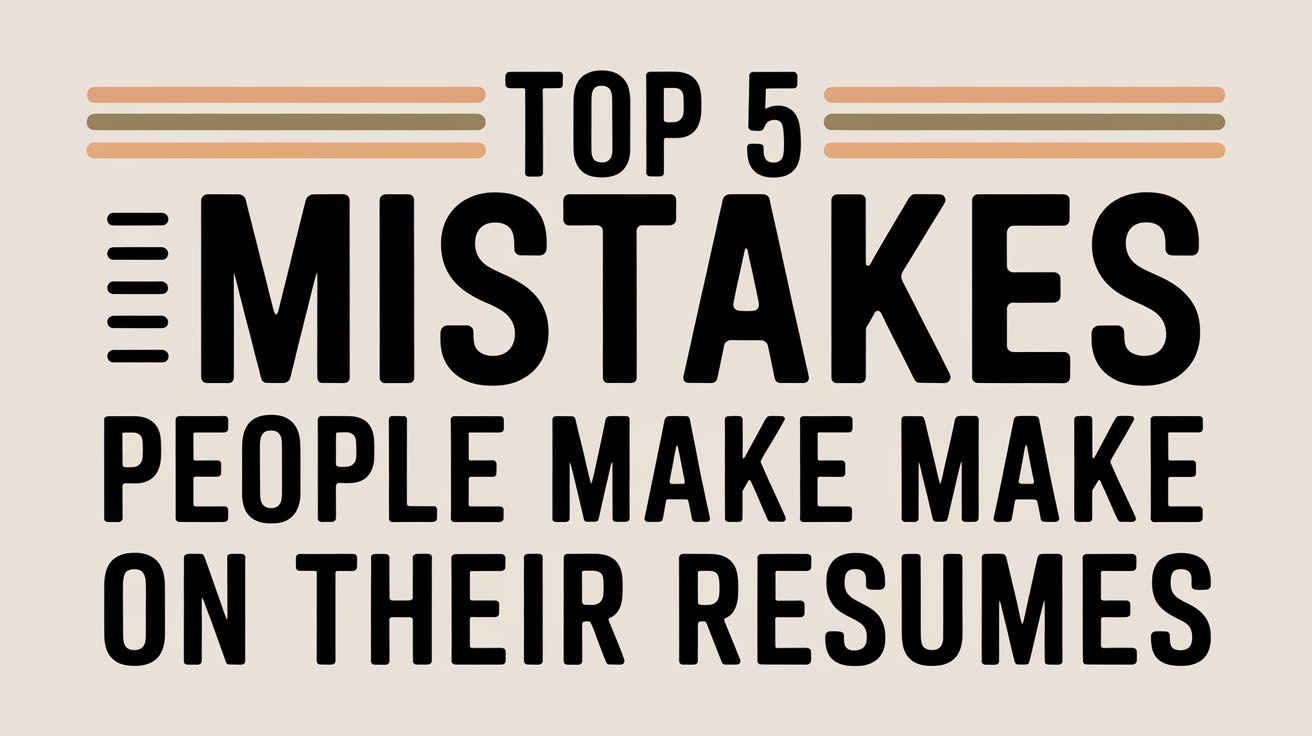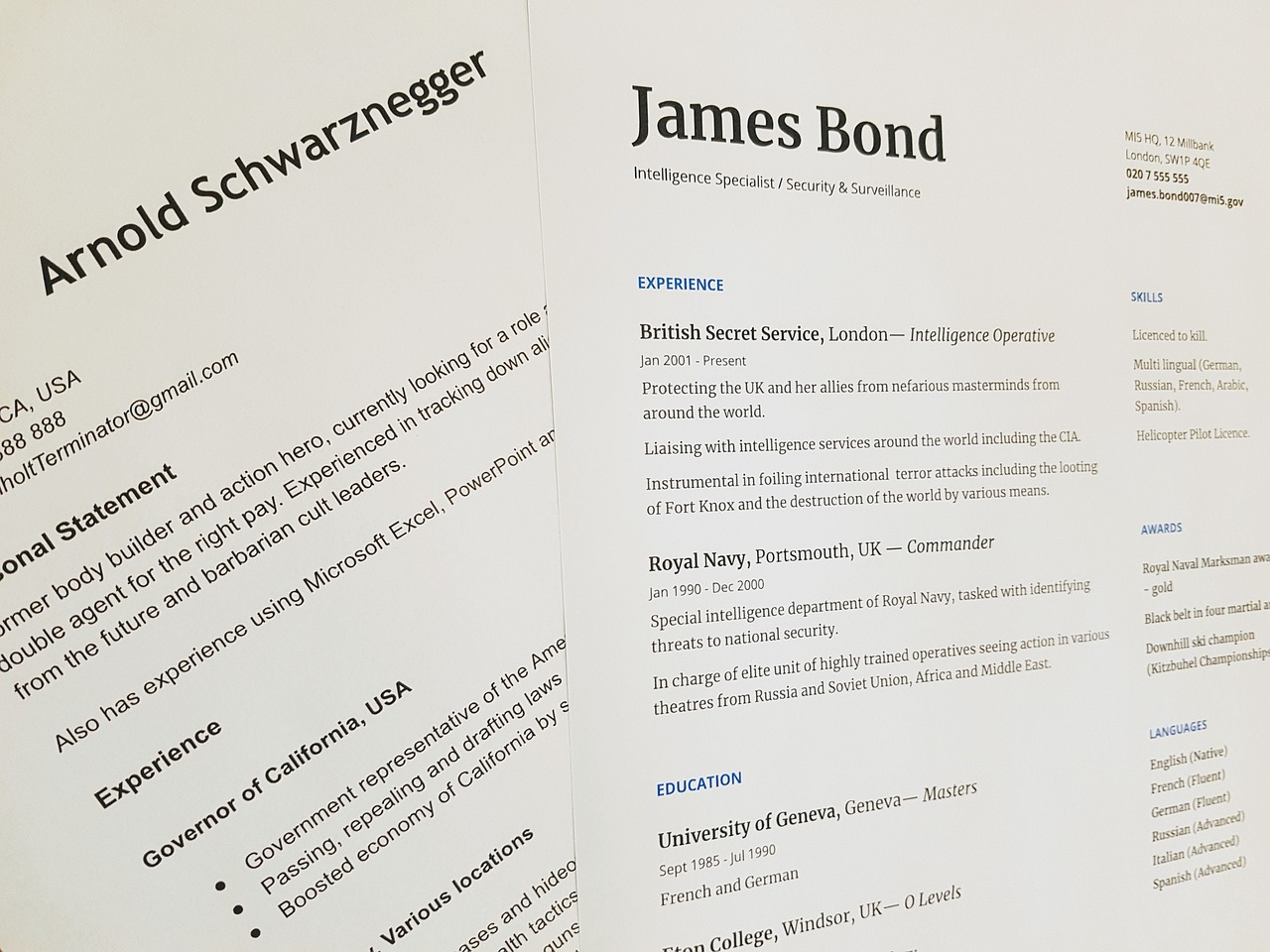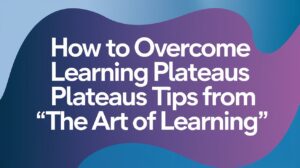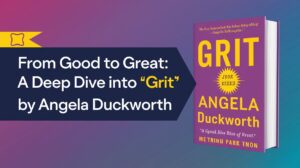A resume is the first impression when it comes to applying for a job. It is the key to opening up doors and securing interviews. Yet, several applicants make crucial mistakes inadvertently that reduce their chances of getting noticed. Keeping off these mistakes means the difference between an interview call and landing into the discard pile.
We have discussed in this article five of the most common mistakes people do on their resumes and how you should avoid them. Follow these tips to get a winning document, whether you plan to update your resume or to draft one from scratch.

Mistake #1: Not targeting for the job
One of the most common mistakes job applicants make is to use a single, generic resume for every position. A “one-size-fits-all” approach can severely minimize your prospects of selection. Hiring managers seek out candidates who fit the specific position perfectly. If your resume does not reflect those skills and experiences that meet the requirements described in the ad, it will probably be overlooked.
How to Avoid
- Read the job posting carefully and identify what skills and qualifications an employer is seeking.
- Tailor your resume: Emphasize the experiences and skills you have that match the job’s requirements. Try using some of the exact same words used in the posting.
- Rewrite your objective or summary section to better match the specific job to which you are applying.
Targeting your resume shows you are not just looking for any old job, but this particular job; you are competent to perform the job in question.
Mistake #2: Incorporating Irrelevant Information
There might be the urge to include everything you’ve ever done on your resume, but a cluttered document of information that’s not relevant to the job in question can only detract hiring managers from those qualifications that actually count. Too much experience unrelated to the job can lead the employer to believe you are not focused, or that you are inexperienced for the role to which you are applying.
How Not to Commit It:
- Relevant experience: Only past job experiences, achievements, and skills relevant to the applied position.
- Avoid outdated irrelevant skills: For example, if one applies for a job in technology, old software proficiency included is not going to help anything.
- Be concise: Emphasize most recent and relevant experiences.
Oftentimes, less is more with resumes. A concise and focused resume means much more than a long one full of information that isn’t needed.
Error #3: Bad Formatting and Layout
Even when all the information is there, a resume that is improperly formatted just becomes a pain to read, and that is a huge turnoff for hiring managers. A cluttered, messy, or scan-unfriendly resume might get rejected-even if you’re qualified for the position.

How to Avoid:
- Use headings and bullet points to organize information in a logical manner.
- Use a clean, professional font, such as Arial or Calibri. It should be easy to read.
- Be consistent with your font size and spacing. Make your text similarly formatted throughout.
- Avoid overdoing the design elements such as fancy fonts or graphics; this is unprofessional.
An easy-to-read and well-structured resume will make a difference, as busy hiring managers may screen many in just a few seconds each.
Mistake #4: Too Many Buzzwords and Clichés
Of course, you want to emphasize your competencies, but using too many buzzwords like “hard-working,” “team player,” or “motivated” could, as a matter of fact, decrease the strength of your qualifications. For the most part, this would be too general and is not demonstrating your real evidence of skill.
How to Avoid:
- Make them concrete. Instead of saying that you are “results-driven,” give examples where you got results.
- Examples of action verbs to use in descriptions of one’s role in various projects might include words such as “led,” “designed,” or “implemented.”
- Not only would such buzzwords be utterly irrelevant, but they are grossly overused. Instead, focus on what you have done that justifies these qualities.
By giving clear-cut examples of your achievements and experiences, you will outshine the competition, and the hiring managers will have a better sense of what you can bring into their organization.
Mistake #5: Typos and Grammatical Errors
A resume full of typos or grammatical errors speaks only one language to a potential employer-that is, the wrong one. It implies a lack of attention to detail, a fairly major skill in most jobs. One small mistake can make a huge difference.
How to Avoid:
- Proofread your resume multiple times prior to sending.
- Run it through Grammarly, or have a trusted friend/colleague do an error check.
- Read your resume out loud to catch awkward phrasing or grammatical mistakes that might not leap out while reading silently.
Your resume represents your professionalism. The tiniest mistake may cost you the opportunity to make a good impression, so it needs to be perfect before you hit that “submit” button.
Bonus Tip: Recommended Reads to Perfect Your Resume
Looking for more ways to make your resume perfect? Here are some expert advice and real, on-the-job tips to help you perfect it:
- “The Elements of Resume Style” by Scott Bennett
The book deals with the drafting of clear, concise, yet catchy resumes, and how to avoid some common pitfalls. - “What Color Is Your Parachute?” by Richard N. Bolles
Though a classic in career development, this volume also includes practical approaches to job hunting, including resume writing. - “Knock ’em Dead Resumes” by Martin Yate
For anyone looking for the best guide on how to create dynamic resumes, this book is filled with insider tips and real-world examples. - “The Resume Writing Guide: A Step-by-Step Workbook for Writing a Winning Resume” by Lisa McGrimmon
A great read for those determined to create a standout resume in today’s competitive job search.
Conclusion
Writing a resume is pivotal in successful job searching, and avoiding common mistakes greatly increases the likelihood of landing interviews. In order, tailor your resume to the job, leave out irrelevant information, format properly, avoid buzzwords, and proofread thoroughly. Do these things, and you will be well on your way to creating a noticed-and most importantly, result-getting-resume.







